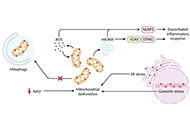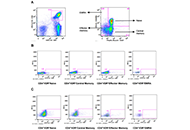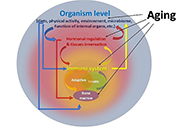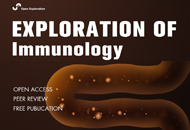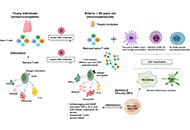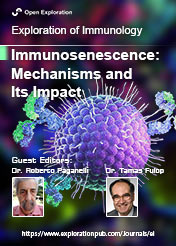
Immunosenescence: Mechanisms and Its Impact
Guest Editors
Dr. Roberto Paganelli E-Mail
Professor of Internal Medicine (MED 09) at the School of Medicine and Surgery of the G. d’Annunzio University, Chieti, Italy
Research Keywords: Aging, autoimmunity, autoantibody, antibodies, immunoglobulin, rheumatic diseases, allergy
Dr. Tamas Fulop E-Mail
Full professor, Department of Medicine, Geriatric Division and Department of Radiology and Nuclear Medicine, Université de Sherbrooke, Sherbrooke, Canada
Research Keywords: Aging, geriatrics, immunology, neurosceinces, nutrition
About the Special lssue
Aging is both a chronological as well as a functional phenomenon, Certain aspects of aging may begin early in life, but at a different rate in different organs and different individuals, Studies on longevity have dissected both genetic and environmental determinants of aging, The aging of the immune system is a multifaceted process which is thought to underlie most aspects of organ and individual aging. Confrontation with the exome shapes immunological responses and our immune repertoire. Among external cues, infectious agents (especially viral ones) and local microbiota have emerged as major factors affecting both our responses and tissue inflammation. Since low level inflammatory milieu has been proposed to underlie immunosenescence (inflamm-aging), this special issue is welcoming research articles and reviews and opinions on the definition of the mechanisms of the immune system aging, its biomarkers for innate and adaptive immunity in various districts, and the impact of immunosenescence on the function of different systems (neurological, musculoskeletal, cardiovascular, gastrointestinal)) and organs (kidney, liver, eye, others) and their diseases in the elderly.
Keywords: Aging, immunosenescence, immune system, mechanisms, impact, organ
Published Articles
